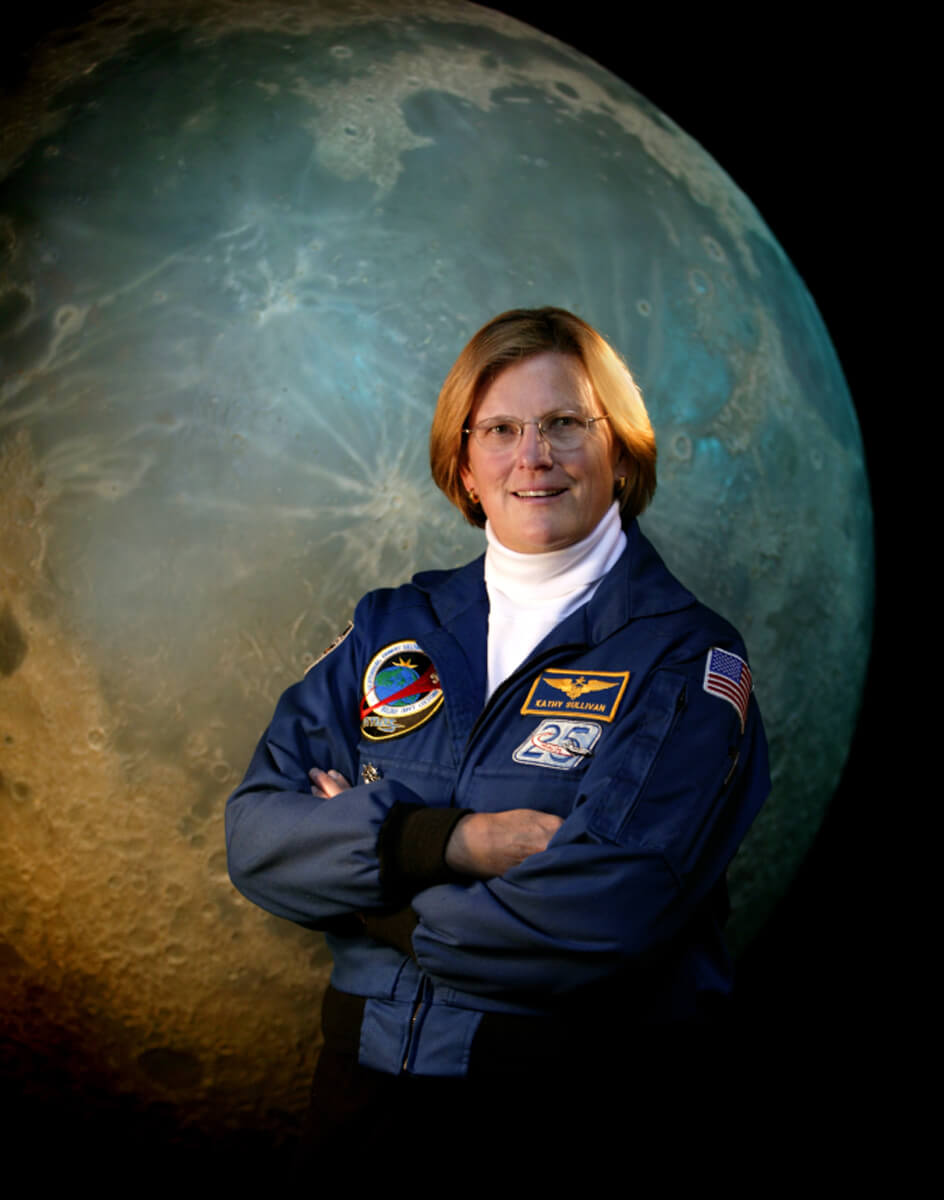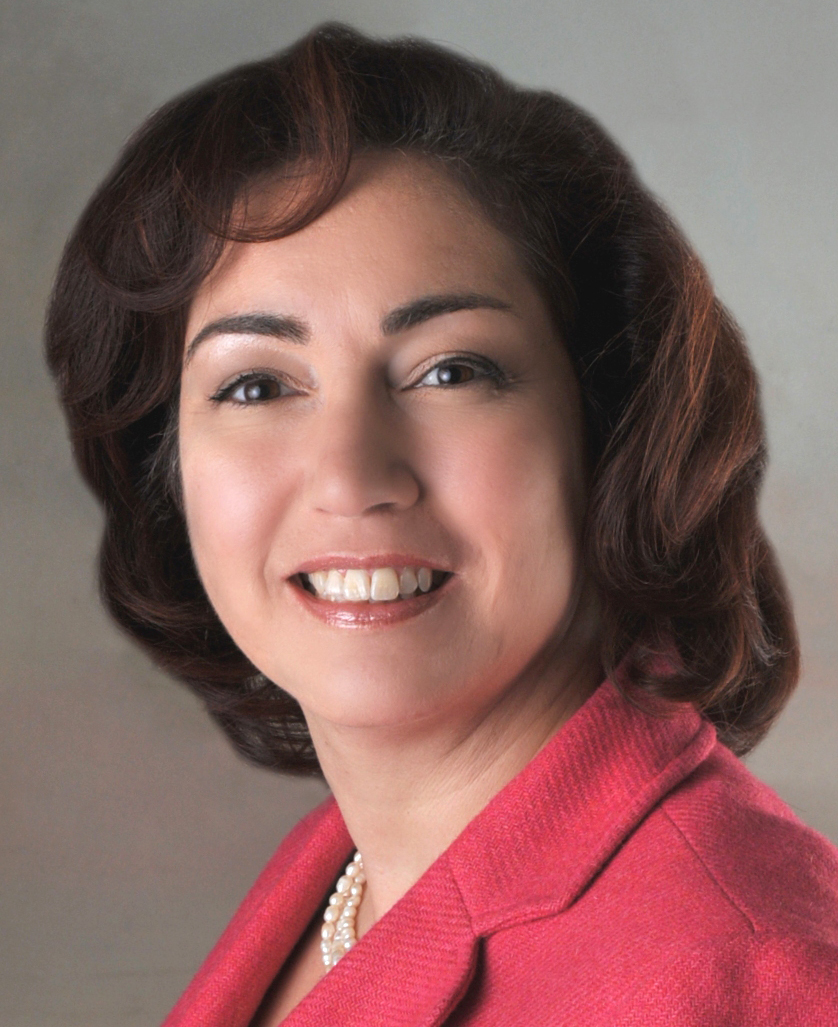Discovery Lecture features first woman astronaut to walk in space
WEST LAFAYETTE, Ind. – A lecture by the first American woman to walk in space will highlight Purdue's Discovery Lecture next week, offered in conjunction with the dedication of the $25 million Hall for Discovery and Learning Research.
Kathryn D. Sullivan, the first of only seven American women to walk in space and one of the first six females selected as a NASA astronaut in 1978, will deliver her talk, "Reaching for the Stars: Perspectives on Transforming Education," at 3:30 p.m. April 16, in the new Hall for Discovery and Learning Research, Room 131. The event is free and open to the public.
"What a great opportunity to celebrate the opening of the Hall for Discovery and Learning Research with a Discovery Lecture that highlights Purdue's legacy in space exploration and our global strengths in the STEM fields of science, technology, engineering and mathematics," said Gabriela Weaver, the Jerry and Rosie Semler Director of the Discovery Learning Research Center and professor of chemistry and science education. "We are happy to have this opportunity to shine the spotlight on this challenge in education with a lecture by Astronaut Sullivan, who is a testament of what we can achieve if we hold fast to our dreams."
Sullivan, director of the Battelle Center for Mathematics & Science Education Policy in the John Glenn School of Public Affairs at Ohio State University, logged more than 530 hours in space during her three space flights.
Her historic space walk took place during her very first mission aboard shuttle Challenger in 1984. Subsequently, she was a crewmember aboard Discovery that deployed the Hubble Space Telescope in 1990 and led the scientific team for a 10-day Spacelab mission aboard Atlantis in 1992.
Science education is a lifelong passion for Sullivan, who was a 2004 inductee to the Astronaut Hall of Fame. While still with NASA, she played a pivotal role in creating the Challenger Center for Space Science Education.
This passion took center stage in 1996 with her appointment as president and chief executive officer of the Center for Science and Industry, one of the nation's premier centers for hands-on science learning. During her tenure, the center moved into a new $125 million facility and substantially deepened its impact on formal science education.
Sullivan also serves on the National Science Board and is an experienced corporate director and acclaimed speaker.
A dedication ceremony for the new Hall for Discovery and Learning Research, located at 207 S. Martin Jischke Drive in Discovery Park, will precede Sullivan's lecture. Related lectures, beginning at 2:30 p.m. April 16, also are planned:
-- "National Center for Learning and Teaching in Nanoscale Science and Engineering," by Nicholas Giordano, the Hubert James Distinguished Professor of Physics; and Lynn Bryan, Purdue physics professor in the Department of Curriculum & Instruction.
-- "Fat Dogs and Coughing Horses: Animal Contributions Toward a Healthier Citizenry," by Sandy Amass, Purdue professor and associate dean for engagement for the School of Veterinary Medicine.
The Indianapolis-based Lilly Endowment provided a $1 million gift to Discovery Park in 2005 to sponsor the ongoing Discovery Lecture Series. Prior Discovery Lectures have focused on nanotechnology, health care and global entrepreneurship.
Launched in 2003, the Discovery Learning Research Center is leading an interdisciplinary team of researchers focused on projects designed to revolutionize learning in the STEM disciplines.
With more than 91,000 net square feet, the Hall for Discovery and Learning Research features flexible spaces designed for educational research unlike any available nationwide. The spaces at the Discovery Park facility also incorporate technologies and structural features that allow for collection of research data about the learning experience.
The Discovery Learning Research Center is one of the original centers launched by Purdue as a cornerstone for Discovery Park, which has grown into a $500 million complex for leading the university's large-scale interdisciplinary research in areas such as cancer, life sciences, nanotechnology, STEM education, health care and entrepreneurship.
Writer: Phillip Fiorini, 765-496-3133, pfiorini@purdue.edu
Sources: Gabriela Weaver, 765-496-3055, gweaver@purdue.edu
Willie Burgess, 765-494-0668, wburgess@purdue.edu
Valerie Lawless, 765-494-3662, dpengage@purdue.edu


